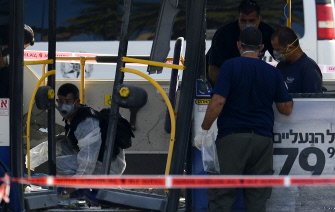Mahmoud Abou-Zeid, better known as Shawkan, was moved back to his cell Monday after four days in solitary confinement, according to his father.
Head of the investigations bureau, Sayed Selim, had previously ordered to send Shawkan, along with two other prisoners, into solitary confinement.
The decision to allow Shawkan to return to his cell came in response to objections from fellow inmates, who refused to go back into their cells in protest of the order.
The prisoners moreover protested the violations against their family members during their visits, demanding to negotiate with the prison warden.
The warden reportedly promised an immediate response to their demands, apologising to the prisoners for the violations.
Shawkan was moved to solitary confinement on Friday, after he was purportedly accused of having a mobile phone in his cell – an accusation that he reportedly denied.
According to Shawkan’s father, a different prisoner was in position of a phone, and admitted to having it to Selim on Saturday. However, Selim did not move Shawkan back to his regular cell until Tuesday.
Several activists demanded Shawkan’s immediate release from solitary confinement after news broke of him being moved, due to the severe deterioration of his health.
According to the renowned author and activist, Ahdaf Soueif, Shawkan would have not been able to tolerate the severe conditions of solitary confinement, and could have died.
Despite mounting calls for his release from national and international organisations, Shawkan has been detained since August 2013 in the “Rabaa sit-in dispersal” case, being the only journalist in the case among 738 defendants.
He faces several charges, including belonging to an outlawed group, inciting chaos and assaulting security personnel. He has been held in pre-trial detention for more than 900 days, in violation of Egypt’s penal code, which allows no more than two years in remand.
Further, the Giza Criminal Court has renewed Monday the detention period of journalist Mohammed El-Battawy for 45 days.
El-Battawy is detained over charges of belonging to an outlawed group.
Security forces detained El-Battawy in June 2015 in his home. He was thought to be missing for four days, before he appeared in Tora Prison.



